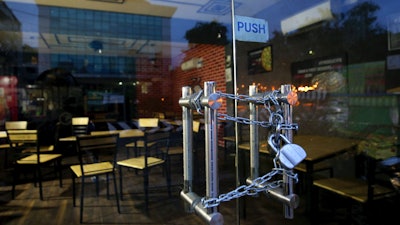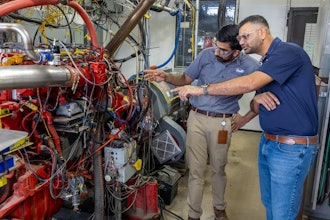
BENGALURU, India (AP) — The coronavirus pandemic has transformed India’s Silicon Valley.
The shops are emptying out fast in an upscale suburb of this bustling Indian metropolis, and the once-popular pubs frequented by the young workforce have fallen silent. The interiors of trendy showrooms, eateries and software companies are accumulating dust and rental signs have lined up the hollowed-out commercial hubs.
The residents are calling it a “bloodbath on the streets.”
Koramangala, a popular haunt among college students and young working professionals in southern Bengaluru city, the IT capital of India, is a mix of luxury apartments, commercial structures, and posh bungalows where many Indian billionaires live. But with months of lockdown forcing businesses to shut and rental dues mounting, companies are downgrading their spaces and moving to cheaper suburbs, leaving the wide tree-lined boulevards eerily empty.
Thousands of students and professionals who worked for IT companies and lived in the area have moved back to their native places to work remotely. Even as much of the Indian economy has reopened, Bengaluru’s professional workforce is returning to work at a much slower pace than those in most other major cities, raising the risk that the city faces a more protracted recovery.
Bengaluru, also known as Bangalore, has been one of the worst-hit cities with nearly 345,000 cases including 4,000 deaths. Nationwide, more than 8.4 million people have been infected and over 125,000 have died.
In May, the government announced a $266 billion stimulus package, but consumer demand and manufacturing are yet to recover and the once-thriving shopping districts and commercial hubs are struggling.
Across Bengaluru, the stories are the same — of property owners renting out places cheaply or watching them empty out. Some are even losing out on decades-old tenants.
“My good tenant of 17 years, an Italian designer furniture outlet, vacated recently,” said G. Kirankumar, owner of a commercial building in Koramangala. “The situation is bad.”
C. R. Janardhana, president of the Federation of Karnataka Chambers of Commerce and Industry, said 15% of the Bengaluru city’s businesses have closed down and 140,000 industries and small and big stores have permanently shut. He said the city was witnessing a slow recovery after opening up but expected the crisis to remain until the pandemic ends.
“People are not in a position to come out. They want to protect their families,” Janardhana said.
For businessmen like Mir Riyaz, a handicraft seller at a luxury hotel in Bengaluru, decisions were made based on revenues, not health risks.
When the owner of his shop refused a rebate in monthly rentals, Riyaz made a quick calculation and realized he could not afford to pay the money. With uncertainty about the resumption of his business still looming large, he vacated the store.
“I am suffering like many others. Whatever is my fate, I have to face it,” Riyaz said.






















